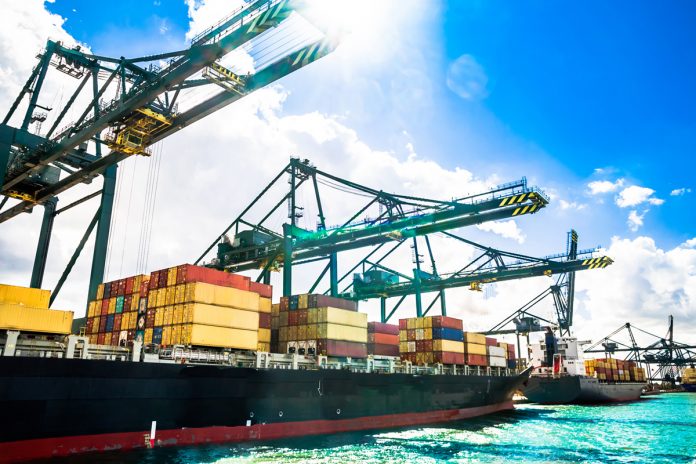Carlos E. Palau, Full Professor in Telecommunication Engineering at Universitat Politècnica de València, profiles PIXEL, a revolutionary European R&D project that concerns Port-IoT for environmental leverage
PIXEL is a revolutionary European R&D project which attempts to develop the first smart, flexible and scalable solution for reducing environmental impacts while enabling the optimisation of operations in port ecosystems through extensive use of the Internet of Things (IoT) and associated tools.
The PIXEL project is a Research and Innovation Action that was launched on 1st May 2018 with a duration of 36 months. The budget of the PIXEL project is nearly €5 million, all of which has been funded by the European Commission under H2020 Framework Programme (H2020, Grant 769355).
Overview of the project
The available operational data in ports (resources tracking, container status, vessel operations, surface or berth available, air/water quality measurements,…) is constantly increasing and technology is getting inexpensive and widely available. However, the application of such systems is still single-entity centric, since the information is not shared, keeping the real potential of the IoT hidden. Furthermore, effective integration of operational data is far from optimal in most ports and especially so in medium or small ports, where the budget is limited and IT services are usually outsourced.
PIXEL enables a two-way collaboration of ports, multimodal transport agents and cities for optimal use of internal and external resources, sustainable economic growth and environmental impact mitigation, towards the Ports of the Future. PIXEL will leverage technological enablers to voluntary exchange data among ports and stakeholders, thus, ensuring a measurable benefit in this process. The main outcome of this technology will be the efficient use of resources in ports, sustainable development and green growth of ports and surrounding cities/regions.
Built on top of the state-of-the-art interoperability technologies, PIXEL will centralise data from the different information silos where internal and external stakeholders store their operational information. PIXEL leverages an IoT based communication infrastructure to voluntarily exchange data among ports and stakeholders to achieve efficient use of resources in ports, as summarised by the following points:
(i). Close the gap between small and large ports by providing an easy-to-use open-source smart platform for operational data interchange;
(ii). Migrate from document-centric management systems to data-centric interoperable systems;
(iii). Reduce environmental impact in Port Cities and surrounding areas by improving the knowledge and control of the port operations, optimising processes and improving management;
(iv). A focus on small-medium ports innovation and;
(v). Improve the energy efficiency of the ports, promote the use of clean energies, improve logistics processes, increase the environmental awareness of all the stakeholders involved and, in general, contribute to reducing the carbon footprint and the environmental impact of the ports and port-related activities.
PIXEL objectives
The PIXEL project has as its main goal the improvement of environmental port efficiency for small and medium ports but with the possibility of extending the results to large ports. PIXEL will make use of different technological enablers like IoT-based connection of port resources, transport agents and city sensor networks. This will provide an automatic aggregation, homogenization and semantic annotation of multi-source heterogeneous data from different internal and external actors.
The gathering of data will allow the development of an operational management dashboard to enable a quicker, more accurate and in-depth knowledge of port operations which is one of the key impacts of PIXEL. Through data management and interpretation, the consortium will model and simulate port-operation processes for automated optimisation, leading to the developments of predictive algorithms to detect behaviours and patterns.
PIXEL will develop a methodology for quantifying, validating, interpreting and integrating all environmental impacts of port activities into a single metric called the Port Environmental Index (PEI). This includes the associated guidelines for mitigating possible environmental and health effects of port activities and developing evidence-based, standardised and cost-effective procedures for environmental monitoring in port areas.
PIXEL impact
The PIXEL project states that the Port of the Future (PoF) concept does not reflect only a future of large European ports, but also of the small and medium ones. Moreover, the PIXEL partners are fully aware of the current diversity and heterogeneity of such ports caused by their size, but also by their internal organisation resulting in a remarkable gap in small and medium port capacity to move towards the port of the future. Furthermore, since economic, environmental and social sustainability are intertwined, all three have to be achieved for their impact to be sustained. Therefore, while PIXEL is mainly focusing on the environmental sustainability of ports, it also aims at enhancing their economic and social sustainability.
The size of a port and its corresponding financial and organisational resources are often assumed as the main prerequisites for a port to be capable of introducing innovation and achieving a significant reduction of its environmental impact. According to this assumption, medium and small ports are destined to be followers in terms of environmental initiatives, innovation and impact. In contrast to this, PIXEL is implemented on the principle that, regardless of the size of the port, it is possible for a port with limited resources (i.e. a medium and small port) to significantly minimise its environmental impacts by relying on scientific methods and innovative technologies.
Thus, the major challenge of this project is to impulse a new index, named as the port environment index and associated regulation to enable the environmentally evaluate ports, with the support of IoT and its associated platform and tools.
For further information, visit our website (www.pixel-ports.eu) or contact the PIXEL Project Coordinator at coordination@pixel-ports.eu
Work (University) contact:
PIXEL Project contact:
Please note: This is a commercial profile











